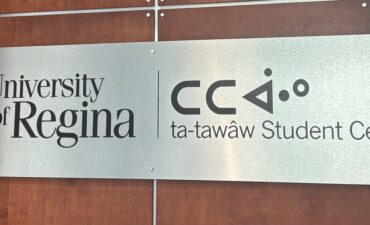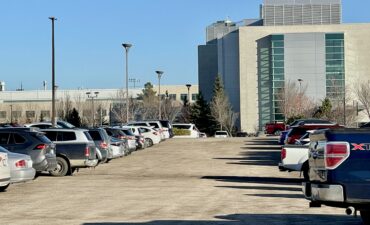New addiction and health legislation proposed by Saskatchewan’s government is drawing concern from healthcare professionals and community members about involuntary addiction treatment undermining trust, autonomy and harm reduction progress.
Announced in the Government of Saskatchewan’s 2025 throne speech, The Compassionate Intervention Act permits individuals “whose addiction is creating a threat to themselves and others (to be) required to enter an addiction treatment program.”
The measure is meant to ensure people receive “the support, compassion and care” they need while keeping communities safe.
“We’re putting our safety ahead of somebody else’s,” said Jeannie Coe, a nurse practitioner working in addiction specific programs, like opioid agonist therapy, with the Saskatchewan Health Authority, Saskatoon Tribal Council in their outlying member nations and the Saskatoon Community Clinic.
The proposed legislation raises ethical questions about consent and effectiveness.
“(When) taking away someone’s right to choose, you have to establish that they’re a risk to themselves or someone else,” said Coe.
“That’s probably one of our biggest concerns, is we don’t have great treatments for substance use disorder,” she added.
Substance use disorder often is a chronic, relapsing condition that requires long-term, voluntary engagement.
Coe added that forcing people into care often backfires.
“(People) don’t often come out of treatment with this renewed vision and ability to live without substances for the rest of their life … it leaves a bad taste for how (treatment) schemes work for them, it’s really harmful.”
The government has promoted new treatment beds — 500 planned, with “300 already available and helping patients on their path to recovery,” in Saskatchewan — as part of its recovery-oriented system.
“The fact they’re not funding supervised consumption is a huge gap that is on one end of this recovery spectrum … we need that for people with severe substance use disorder. That’s how they enter recovery and then eventually get to these beds that are being opened,” said Coe.

Lucia Enrich-Davis, a second-year International Studies student at the University of Regina, said “(the Saskatchewan government is) being coercive and then masking it with this title of compassion,” in the throne speech.
Enrich-Davis is part of InspirED, a group of students that promote practical education and community engagement. Their initiative in the month of October was harm reduction.
“It paints people who use drugs as morally inferior or a threat to society. It really makes the narrative of ‘us’ and ‘them’, them being people who use drugs,” said Enrich-Davis.
Coe echoed those concerns, calling the proposed approach a social response to discomfort and safety, rather than a healthcare solution.
“We need to invest in a system that is humane and robust and is a continuum of services so that people can move along it at their pace.” Coe pointed to managed alcohol programs as examples of voluntary, supportive care that reduce public intoxication and improve health outcomes.
“The general public does not see people who otherwise would be panhandling and passed out all over downtown. And there’s nothing involuntary about it. It’s all voluntary,” she said.
The Ministry of Health did not respond to requests for comment by deadline.















